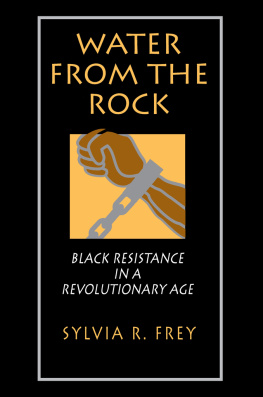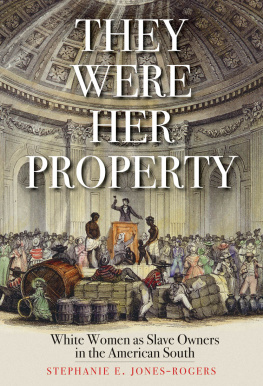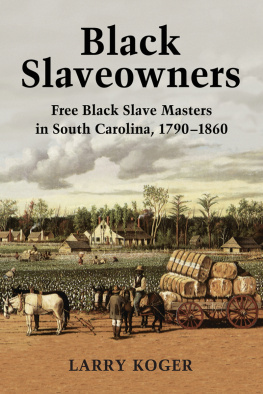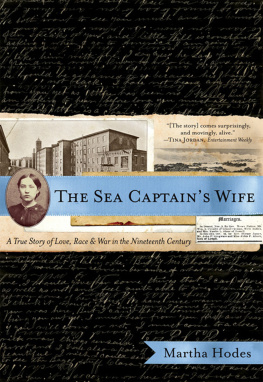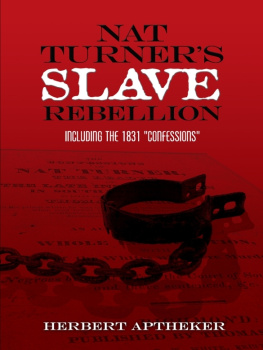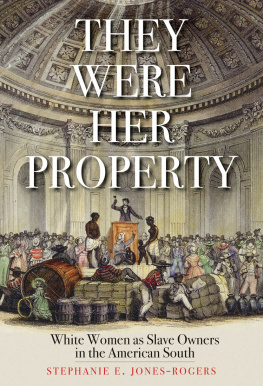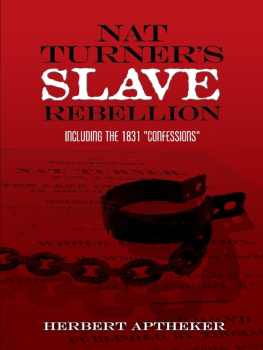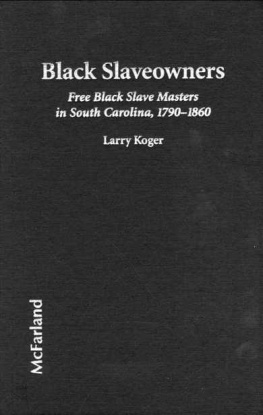White Women, Black Men
White Women, Black Men
Martha Hodes
Illicit Sex in the Nineteenth-Century South

Published with assistance from the Mary Cady
Tew Memorial Fund.
Copyright 1997 by Yale University.
All rights reserved.
This book may not be reproduced, in whole or in part, including illustrations, in any form (beyond that copying permitted by Sections 107 and 108 of the U.S. Copyright Law and except by reviewers for the public press), without written permission from the publishers.
An earlier version of appeared as The Sexualization of Reconstruction Politics: White Women and Black Men in the South After the Civil War, Journal of the History of Sexuality 3 (1993): 40217, and was reprinted in American Sexual Politics: Sex, Gender, and Race Since the Civil War, ed. John C. Fout and Maura Shaw Tantillo (Chicago: University of Chicago Press, 1993), 1993 by The University of Chicago Press. All rights reserved.
Designed by Sonia L. Scanlon
Set in Sabon type by Tseng Information Systems, Inc.
Printed in the United States of America by Vail-Ballou Press, Binghamton, New York.
Library of Congress Cataloging-in-Publication Data
Hodes, Martha Elizabeth.
White women, Black men : illicit sex in the nineteenth-century South / Martha Hodes.
p. cm.
Includes bibliographical references and index.
ISBN 978-0-300-07750-6
0-300-07750-5 (pbk. : alk. paper)
1. Sex roleUnited StatesHistory19th century. 2. Sex customsUnited States History 19th century. 3. White women United StatesSexual behavior. 4. Afro-American menSexual behavior. 5. United States-History-Civil War, 1861-1865. 6. United StatesSocial conditionsTo 1865. I. Title.
HQ1075.5.U6H63 1997
306.7O97509034-dc21 97-9320
CIP
A catalogue record for this book is available from the British Library.
The paper in this book meets the guidelines for permanence and durability of the Committee on Production Guidelines for Book Longevity of the Council on Library Resources.
10 9 8 7 6 5
For my father, Stuart
For my partner, Bruce
Contents
Acknowledgments
For generous support making possible invaluable periods of uninterrupted researching and writing, I thank the National Endowment for the Humanities, the American Council of Learned Societies, the Regents of the University of California, the Academic Senate of the University of California at Santa Cruz, the Whiting Foundation, the American Historical Association, the North Caroliniana Society, the Princeton University Council on Regional Studies, and the Princeton University Program in Womens Studies. For graciously accompanying me in the search for evidence on a largely unindexed topic, I thank the archivists and librarians of the National Archives, the Maryland Hall of Records, the Maryland Historical Society, the Library of Virginia, the North Carolina Division of Archives and History, the Southern Historical Collection and the North Carolina Collection in the Wilson Library at the University of North Carolina, the William Perkins Library at Duke University, the Georgia Department of Archives and History, the Atlanta Historical Society, and the Schomburg Center for Research in Black Culture at the New York Public Library. The interlibrary loan staff at New York Universitys Bobst Library gave immeasurable assistance, providing me with a steady stream of elusive documents.
Christine Stansell was my greatest ally in this projects first incarnation, consistently offering the most rigorous and enlightening criticism; I thank her also for her steadfast support ever since. Nell Irvin Painter from the beginning offered insights that illuminated enormous paths of inquiry, and every subsequent conversation with her has opened my eyes anew. James McPherson long ago demonstrated faith in this idea, and then showed me the best bicycling roads in the New Jersey countryside. Barbara Fields responded to a germ of a proposal with a very long letter that kept me from losing my way. Eva Moseley of Radcliffe Colleges Schlesinger Library on the History of Women set me on the path to becoming a historian.
Bruce Dorsey read every word of the manuscript many drafts over and talked with me for uncountable hours about everything from the shadings of a words meaning to the purposes of history. His inspirations have shaped much of my thinking on this project. Eleven more people read the entire manuscript at different stages. For their generous time and edifying commentary I am indebted to Edward Ayers, Thomas Bender, Nancy Cott, Hasia Diner, James McPherson, Kevin Mumford, Nell Irvin Painter, Jeffrey Sammons, Christine Stansell, Deborah Gray White, and an anonymous reader for Yale University Press. Other colleagues read particular portions of the manuscript and proffered crucial criticism in their special fields. I am grateful to Peter Bardaglio, Sharon Block, Kathleen Brown, Fitzhugh Brundage, Victoria Bynum, Laura Edwards, Drew Faust, James Goodman, Stephanie McCurry, David Roediger, and Bryant Simon. For commentary at conferences, colloquia, and seminars, I thank Victoria Bynum, Cornelia Dayton, David Garrow, Edith Gelles, Glenda Gilmore, Linda Gordon, Robert Gross, Suzanne Lebsock, Susan Levine, Stephanie McCurry, Melton McLaurin, Linda Reed, and Stephanie Shaw. Extra gratitude goes to Sharon Block and Fitzhugh Brundage for their generous sharing of archival material. I also thank participants in the Research Project in Southern History at the University of California at San Diego; the Bay Area Seminar on Early American History and Culture; the Narrating Histories Workshop at the California Institute of Technology; and the womens history reading group and cultural studies colloquium at the University of California at Santa Cruz. For indispensable assistance at the office, I am beholden to Sylvia Holmes in California and to Karin Bur-rell, Ben Maddox, and William Seward in New York. I thank Laura Jones Dooley for extremely keen copyediting. And knowing that Charles Grench was the editor of this book from its early stages has without fail eased my mind. I have not always agreed with or heeded the advice of readers and listeners, and I alone am responsible for the arguments herein.
For countless conversations that may have begun with scholarship but then ranged far and wide, I extend deep gratitude to Sharon Achinstein, Sharon Block, Wini Breines, Ada Ferrer, Miriam Formanek-Brunell, Dana Frank, Kristin Gager, James Goodman, James Green, Katherine Jansen, Walter Johnson, Jason McGill, Bryant Simon, Moshe Sluhovsky, and Judith Weisenfeld. For camaraderie and professional encouragement I am truly obliged to David Anthony, Thomas Bender, Robert and Jean Berkhofer, Yvonne Chireau, Lizabeth Cohen, Sophie de Schaepdrijver, Sarah Deutsch, Hasia Diner, Gregory Dowd, Lisa Duggan, Antonio Feros, Lisbeth Haas, Ronnie Hsia, Robin Kelley, Yanni Kotsonis, Linda Lom-peris, Louis Masur, Mary Nolan, Jeffrey Sammons, Jerrold Seigel, Sinclair Thomson, Joanna Waley-Cohen, Susan Ware, Louise Young, and Marilyn Young. The American Dance Festival at Duke University made summer Southern research a great deal more fun. And tremendous thanks to Marjorie Murphy and the History Department at Swarthmore College, who along with Harvard Avenue neighbors welcomed me during two years of unofficial residence. I finished this book to the rushing waters of Crum Creek.
Outside university walls, Jody Goodman and Marc Fisher genially opened their home to me during Washington research trips, thereby nourishing what will always be the longest friendship of my life; Duke Wiser forged an important friendship during the first draft; Sheba Veghte and Steven Fingerhood graciously kept a sun-filled room for me in San Francisco for whenever I needed a respite with good friends; Jamie Jamie-son gave me precious companionship and ever-faithful friendship as she showed me the steepest canyons on our bicycle journeys in and around Santa Cruz; Becky Blythe and Peter Littman offered many warm dinners and at least one unforgettable adventure in the Santa Cruz mountains; and Sharon Achinstein became my best friend during the life of this project.
Next page

